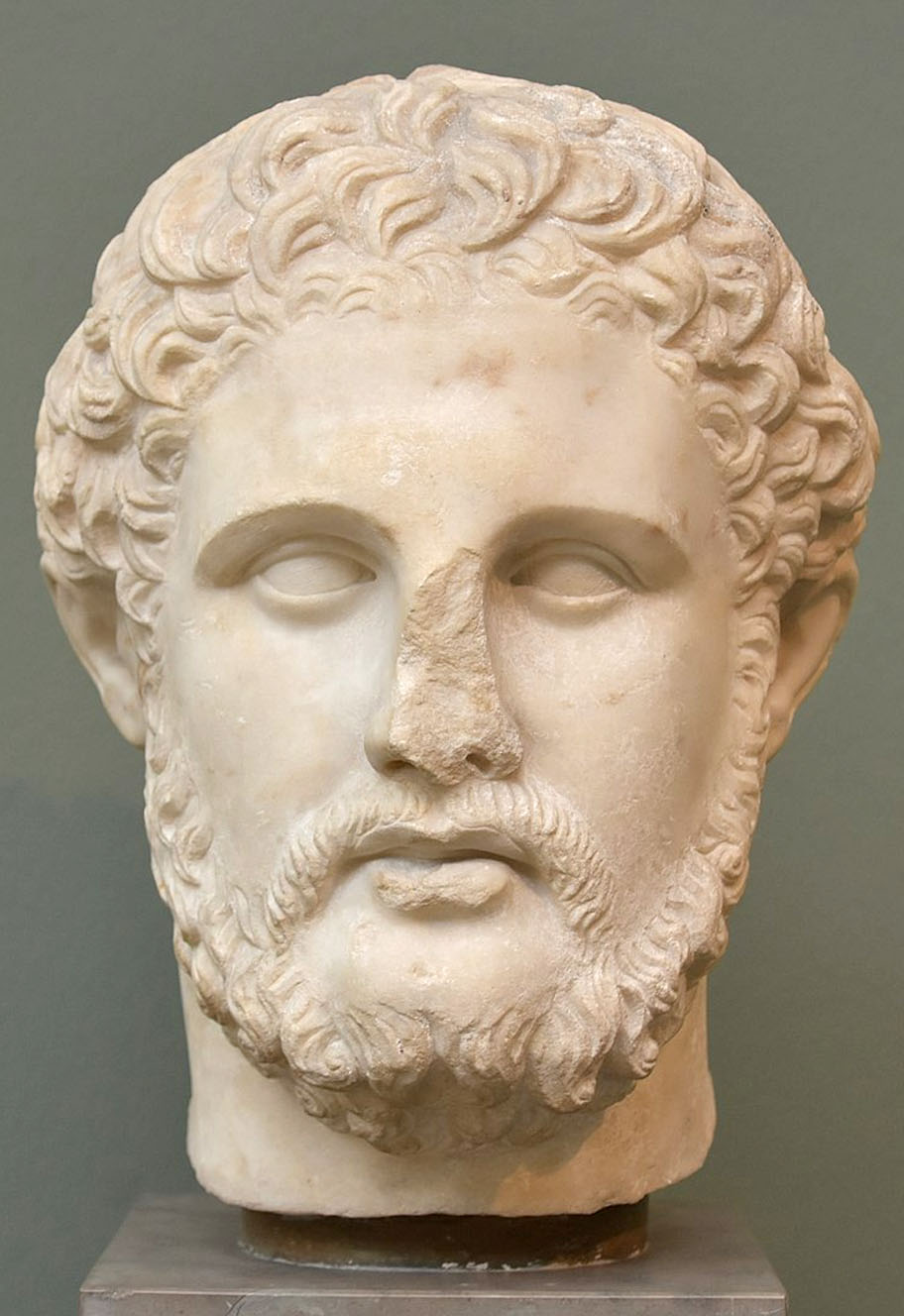Phillip II of Macedon
Born:
C. 382 BCE
Died:
336 BCE
Phillip II of Macedon, also known as Phillip II, was a significant figure in ancient Greek history, particularly known for his military prowess and strategic innovations. He laid the foundations for the rise of Macedon as a dominant power in Greece and set the stage for his son, Alexander the Great, to conquer the known world. Here are key aspects of Phillip II's life and contributions:
Early Life: Phillip II was born around 382 BCE as the youngest son of King Amyntas III of Macedon. He spent his formative years as a hostage in Thebes, where he received a military education and learned the art of warfare. Phillip returned to Macedon in 368 BCE after the death of his elder brothers.
Rise to Power: Phillip ascended to the throne of Macedon in 359 BCE following the assassination of his brother, King Perdiccas III. He faced internal challenges and external threats but quickly consolidated his power through military campaigns and strategic alliances.
Military Reforms: Phillip II revolutionized Macedonian warfare with innovative military tactics and organizational reforms. He introduced the Macedonian phalanx, a disciplined infantry formation armed with the sarissa, a long spear that gave Macedonian soldiers a significant advantage in battle. Phillip also established a professional army, the Macedonian Companion Cavalry, which became the backbone of his military campaigns.
Conquests and Expansion: Phillip embarked on a series of military campaigns to expand Macedon's territory and influence in Greece. He defeated rival Greek city-states and tribes, including the Athenians and Thebans, at the Battle of Chaeronea in 338 BCE, effectively unifying Greece under Macedonian hegemony.
Architectural Projects: Phillip II initiated ambitious architectural projects in Macedon, including the construction of the royal palace at Pella and the expansion of existing cities. He promoted Greek culture and commissioned renowned artists and architects to beautify Macedonian cities, fostering a sense of cultural identity and prestige.
Assassination: Phillip II's reign was cut short when he was assassinated in 336 BCE at the wedding of his daughter Cleopatra. The motives behind his assassination remain unclear, but his death marked the end of an era and set the stage for his son Alexander's ascent to power.
Legacy: Phillip II's legacy looms large in ancient Greek history. He transformed Macedon from a backward kingdom into a formidable military power and laid the groundwork for Alexander the Great's conquests. His military innovations and political achievements reshaped the geopolitical landscape of the ancient world and left an indelible mark on history.

Quick Facts
- Phillip II revolutionized Macedonian warfare with the introduction of the Macedonian phalanx and the Companion Cavalry.
- He unified Greece under Macedonian hegemony after defeating rival city-states at the Battle of Chaeronea.
- Phillip II initiated ambitious architectural projects in Macedon, promoting Greek culture and identity throughout the kingdom.
- His assassination in 336 BCE marked the end of an era and paved the way for his son Alexander the Great's conquests.
Further Reading
Art &
Architecture
Ancient Greek art and architecture, with its harmonious proportions and timeless elegance, continue to inspire awe and admiration millennia later.
Discover
Greek Mythology & Mythical Characters
Greek mythology, a rich tapestry of gods, heroes, and mythical creatures, captivates the imagination with its tales of love, betrayal, and epic adventures that delve into the depths of the human psyche.
Discover
Ancient Greek History
Ancient Greek history, marked by remarkable achievements in democracy, philosophy, and warfare, shaped the foundation of Western civilization, leaving an indelible legacy of innovation and cultural influence that continues to resonate to this day.
Discover
Ancient Greek Olympics
The ancient Greek Olympics, held in Olympia every four years, celebrated athleticism, unity, and cultural pride, serving as a testament to the enduring spirit of competition and excellence that transcends time and borders.
Discover
Ancient Greek Wars
Ancient Greek wars, such as the Persian Wars and the Peloponnesian War, were pivotal conflicts that shaped the course of history, highlighting the struggle for power, independence, and the clash of civilizations in the ancient Mediterranean world.
Discover
Ancient Greek Culture and Society
Ancient Greek culture and society, characterized by its emphasis on art, philosophy, and civic engagement, fostered a vibrant intellectual and social landscape where innovation flourished, democracy thrived, and the pursuit of knowledge and excellence was celebrated as fundamental values of civilized life.
Discover